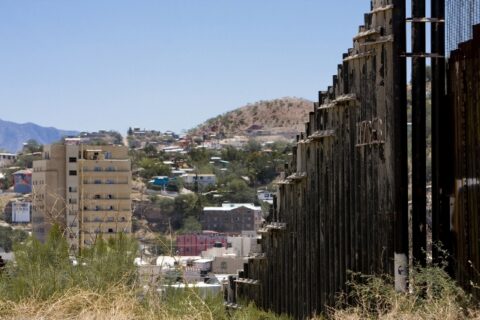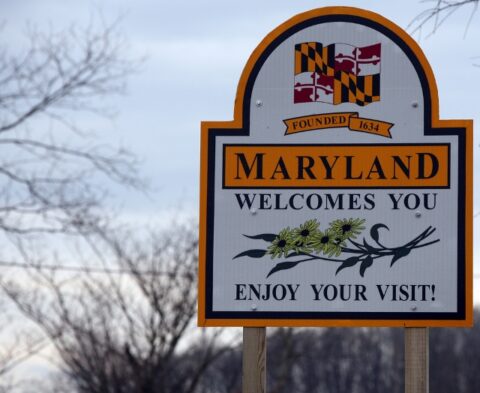Economics

New Research Casts Doubt Upon “Attrition Through Enforcement”
Contrary to the expectations of anti-immigrant activists, unauthorized immigrants are not leaving the United States and returning home en masse in response to the onslaught of federal, state, and local immigration-enforcement initiatives in recent years. In fact, preliminary evidence indicates that unauthorized immigration to the United States from Mexico may be inching its way upward again for the first time since the Great Recession. Why? Because unauthorized immigration responds far more to the state of the U.S. economy than it does to the intensity of U.S. immigration enforcement. This casts considerable doubt upon the nativist creed of “attrition through enforcement”—the belief that making life difficult enough for unauthorized immigrants will motivate them to “self-deport.” Read More

Maryland DREAM Act is a Smart Economic Investment
Education is an investment that yields sizeable dividends over time. Well-educated students go on to become well-educated workers who earn more, pay more in taxes, and are less likely to rely upon public benefits. This is why the DREAM Act, and all of the state-level bills that bear its name, make so much sense. Allowing unauthorized children to graduate from high school and go on to college isn’t simply an act of compassion; it is enlightened self-interest. These children will prove to be far more costly to the state in the long run if they are less educated and living in poverty. Read More

Arizona’s Immigration Policies are an Economic Disaster
Faced with a battered, post-recession economy, lawmakers in Arizona adopted a unique approach to fostering economic recovery; they passed a law that beat down or drove out tens of thousands of the state’s workers, consumers, and taxpayers. The rationale for this counterintuitive action was that the workers, consumers, and taxpayers in question were unauthorized immigrants, and therefore undeserving of support. Some of Arizona’s lawmakers even thought that an exodus of unauthorized immigrants from the state would magically create job openings for unemployed natives. But that’s not how an economy actually works. The unsurprising end result of the attack on unauthorized immigrants has not been recovery, but the shrinking of a state economy that was already contracting. Read More

Agriculture Industry Harmed by Restrictive State Immigration Laws
The American agricultural industry is facing billions of dollars in losses due to labor shortages resulting from recent anti-immigrant laws passed in various states around the country. The American farming industry is heavily dependent on undocumented workers, and according to a recent article in Time Magazine, has had an extremely difficult time replacing those who have fled as a result of laws like Arizona’s SB 1070 or Alabama’s HB 56. Read More

Immigrant Detention and the Private Prison Industry
The latest data on immigration enforcement show that U.S. Immigration and Customs Enforcement (ICE) detained a record high of 429,247 noncitizens in the 2011 fiscal year, an increase of 18 percent over 2010. Immigration detention has been steadily increasing over the last two decades. A new report by Justice Strategies suggests this increase is largely due to the efforts of private prison companies. Read More

Lifting Up Cities That Are Welcoming Immigrants
When it comes to immigration policymaking at the state and local level, all eyes have been focused for quite some time on train wrecks like Arizona and Alabama. These are places in which policymakers have chosen to deal with unauthorized immigration by embarking on a path of economic self-destruction—blindly lashing out at immigrants and Latinos no matter what the cost in terms of wasted taxpayer money, labor-force contraction, lost economic growth, community upheaval, and violations of fundamental human rights. Read More

No Paid Sick Days for Immigrant Caregivers Risky to Workers, U.S. Economy
By Elisa Batista, Women Immigrants Fellow, New America Media. In 91-year-old Elda Frank’s apartment is a scenario that plays out every moment of every day. An immigrant caregiver with no paid sick days scrambles for backup when she becomes ill on the job. In caregiver Paula Osorio’s case, she called Frank’s son, Bruce, and offered to send her partner, Roberto, in her place. Read More

Immigrant Integration is a Two-Way Street
The process by which immigrants integrate into the economic and social fabric of the United States is very much a two-way street. Naturally, immigrants must harbor the desire to climb the socioeconomic ladder of success. But there must be a ladder for them to climb. If the community within which immigrants live and work makes the collective decision to deprive them of opportunities, then their upward mobility is hindered—to the social and economic detriment of the entire community. Yet, if the community actually welcomes newcomers and helps to facilitate their upward mobility, then the community eventually reaps the rewards of having workers and neighbors who are more highly skilled, more integrated, and more heavily invested in the community itself. Read More

Immigration Law Curbs Foreign Student Entrepreneurship
Nearly everyone agrees that the U.S. immigration system should provide visas for entrepreneurs who want to start businesses in the U.S. and employ American workers. However, convoluted immigration laws make it difficult for some entrepreneurs to launch their business while they’re in school and remain lawfully in the U.S. after they graduate in order to run them. A new report by the Kauffman Foundation entitled Reforming Immigration Law to Allow More Foreign Student Entrepreneurs to Launch Job-Creating Ventures in the United States describes the obstacles student entrepreneurs’ face. Read More

Busting Myths About Deferred Action
Beginning today, undocumented immigrants brought to the country as children may officially submit requests for deferred action, a form of prosecutorial discretion that protects recipients from deportation and allows them to work legally in the United States for up to two years. As might be expected, numerous inaccuracies have surfaced in media coverage and other commentary about the initiative, known formally as Deferred Action for Childhood Arrivals (DACA). Below, we address common falsehoods about deferred action in general and the Obama administration’s initiative in particular. Read More
Make a contribution
Make a direct impact on the lives of immigrants.
